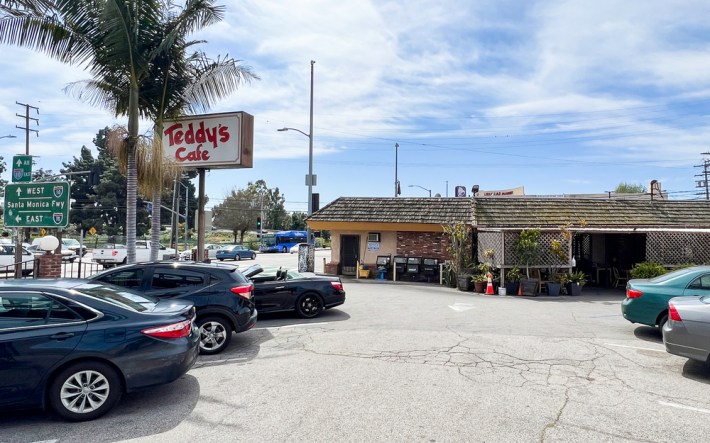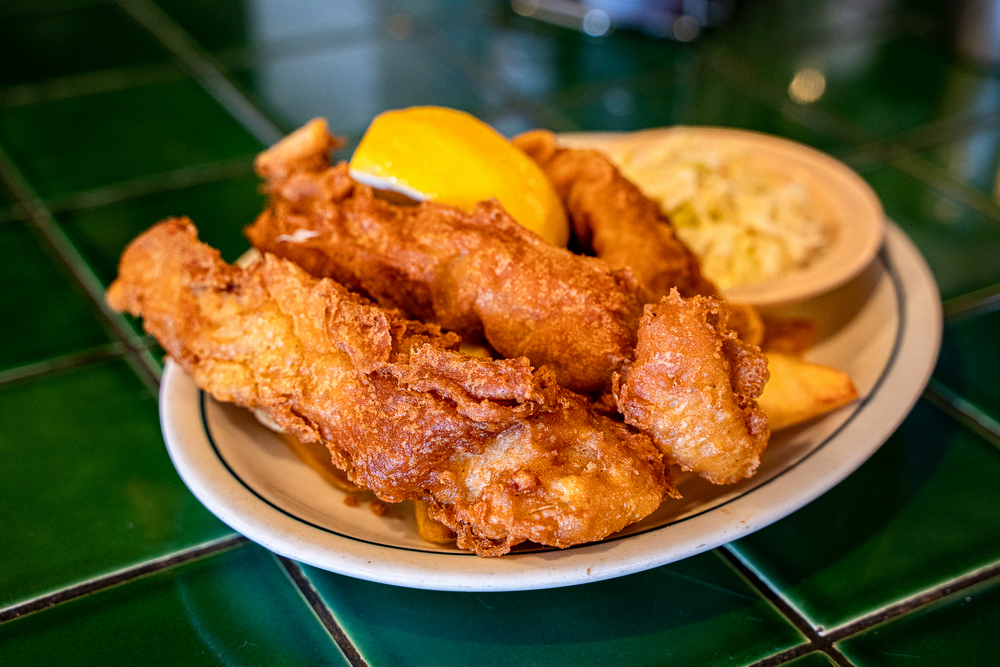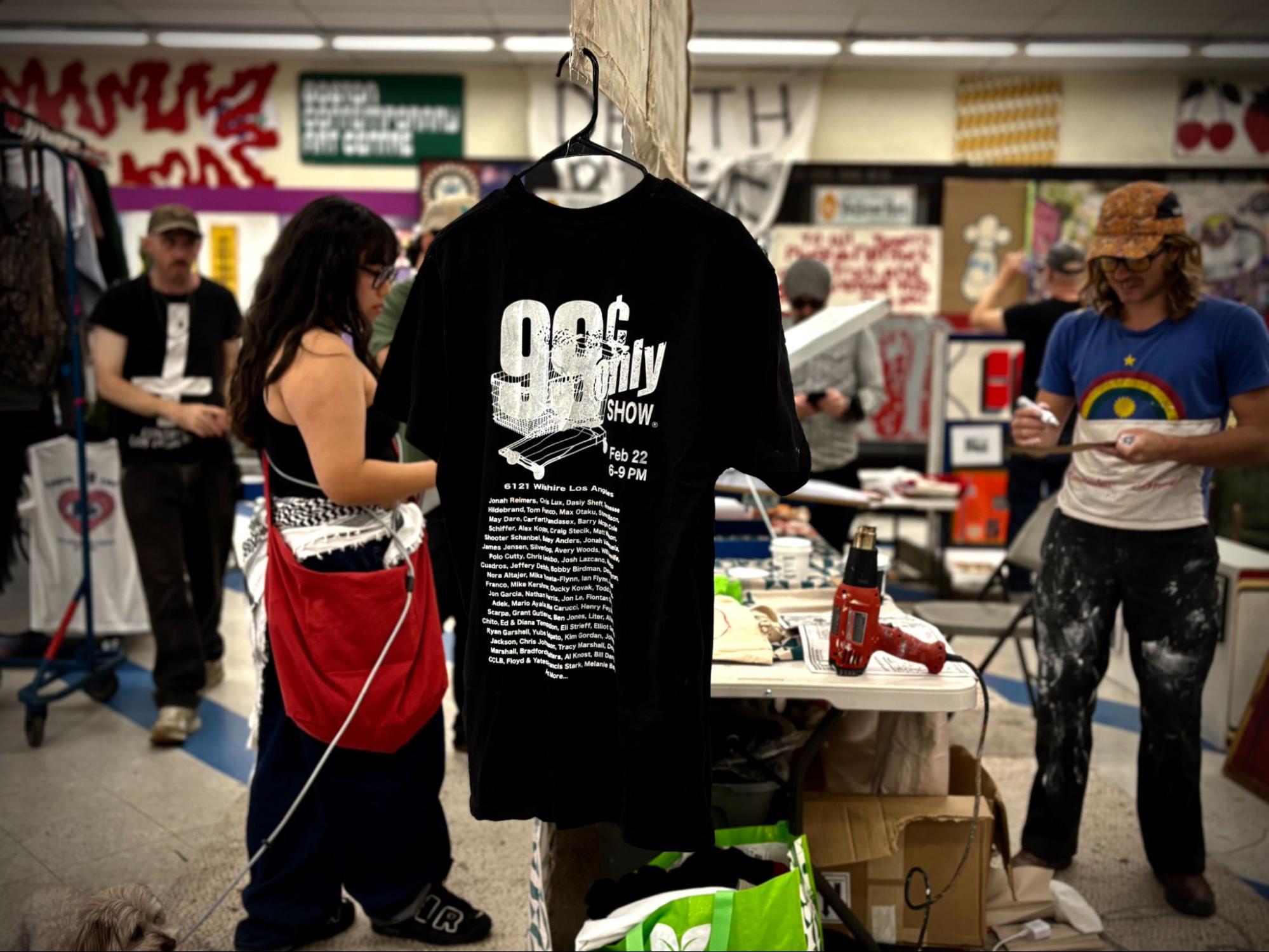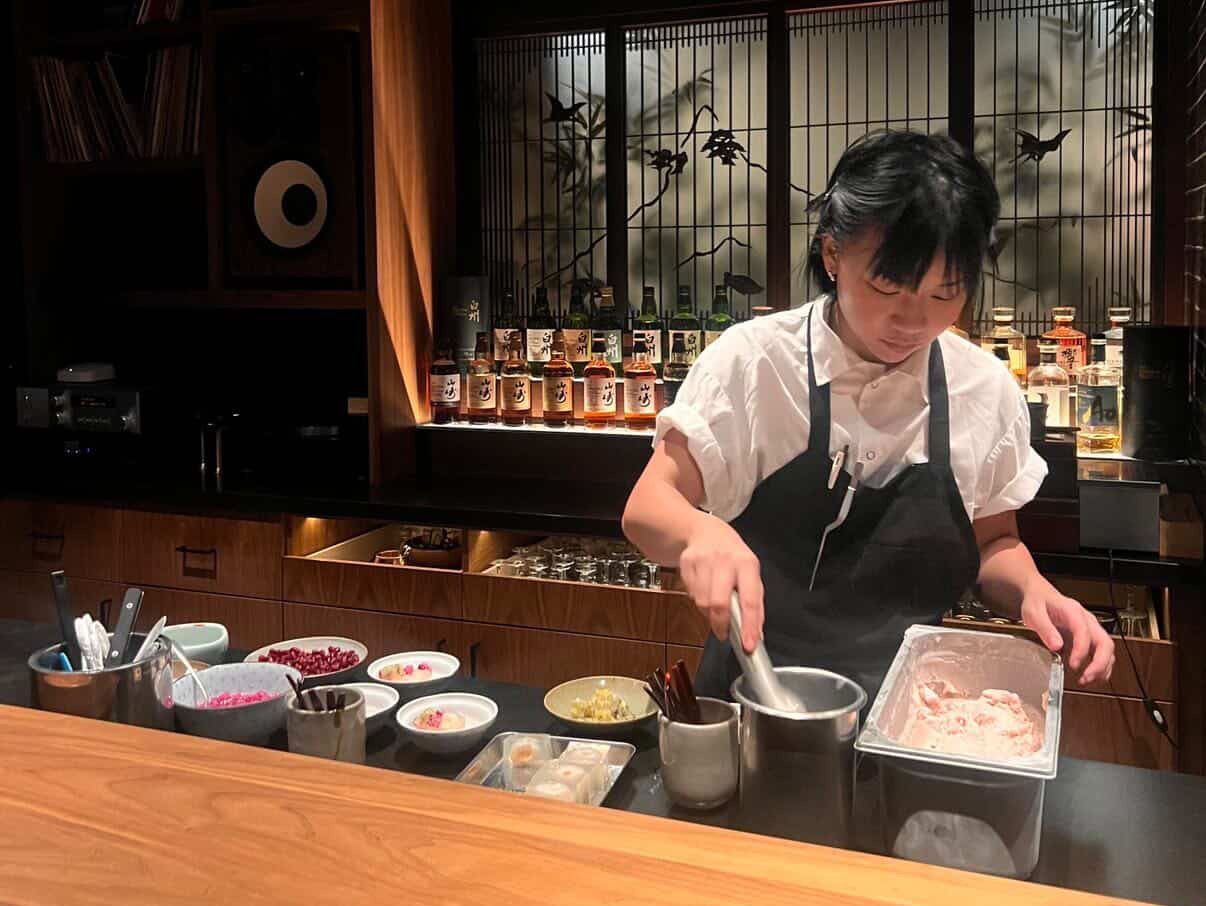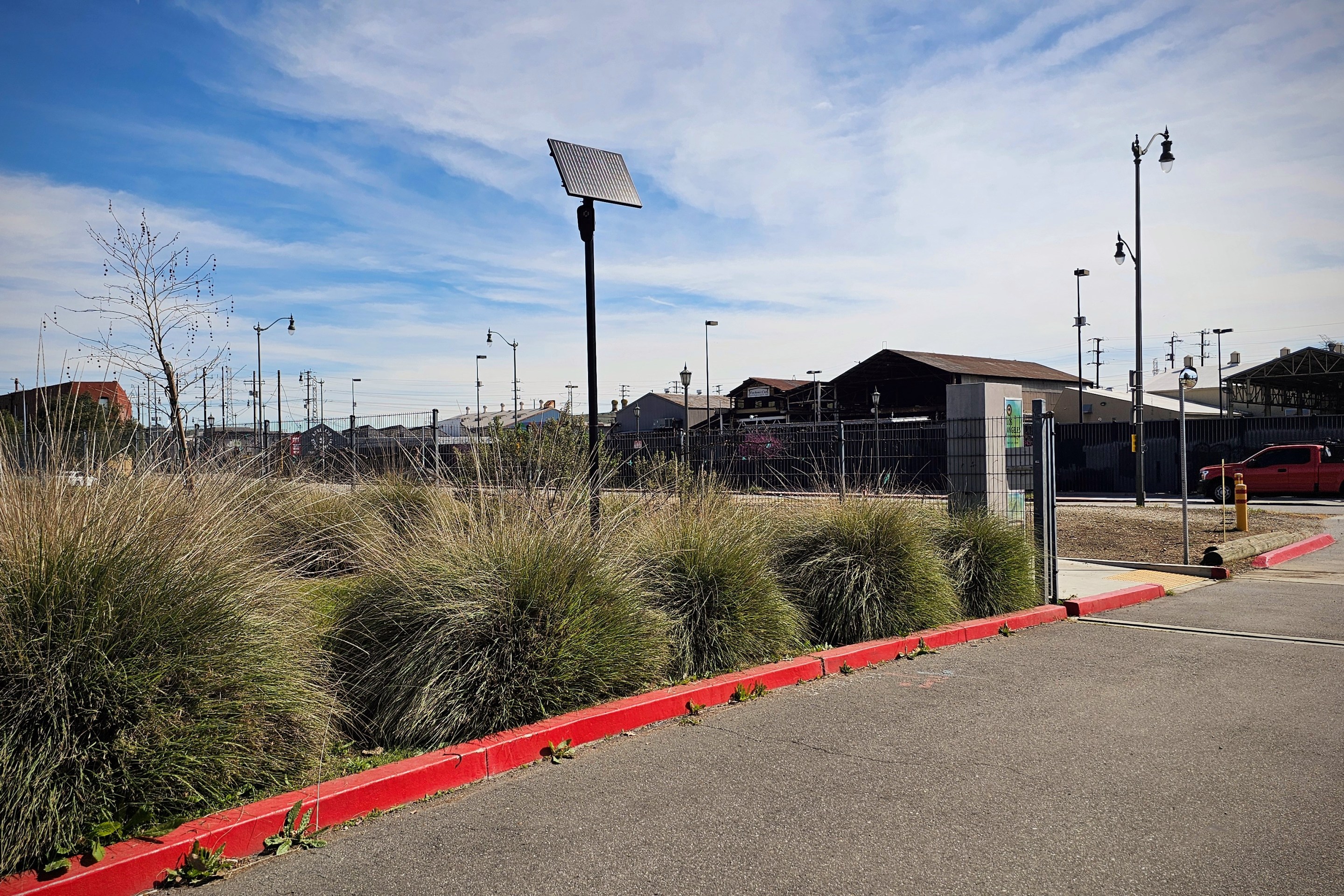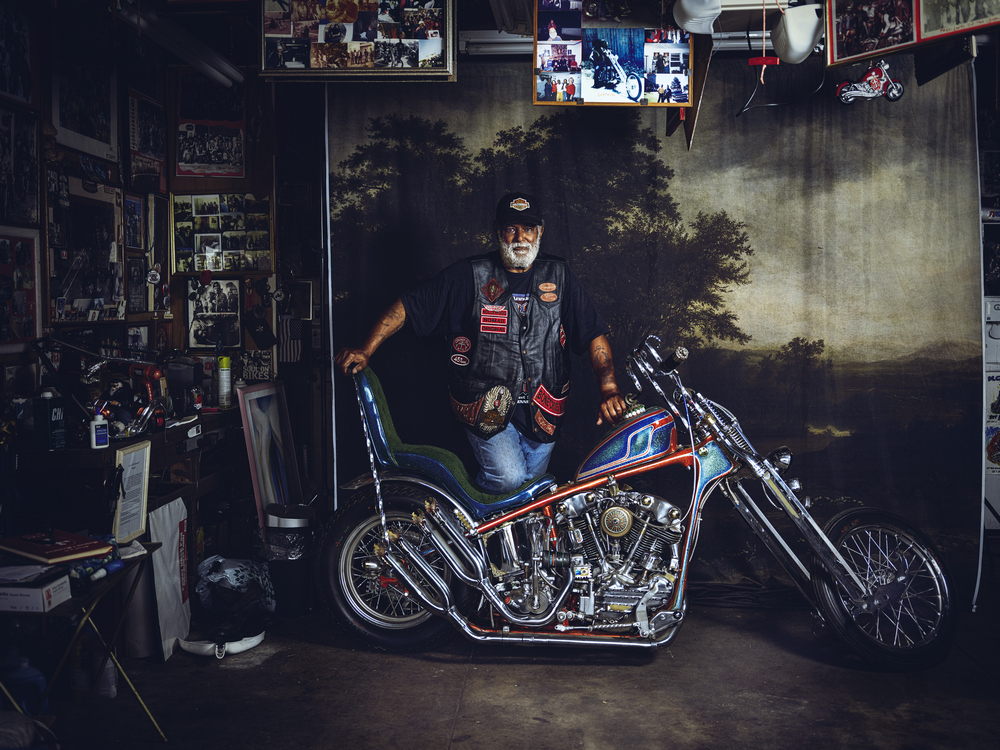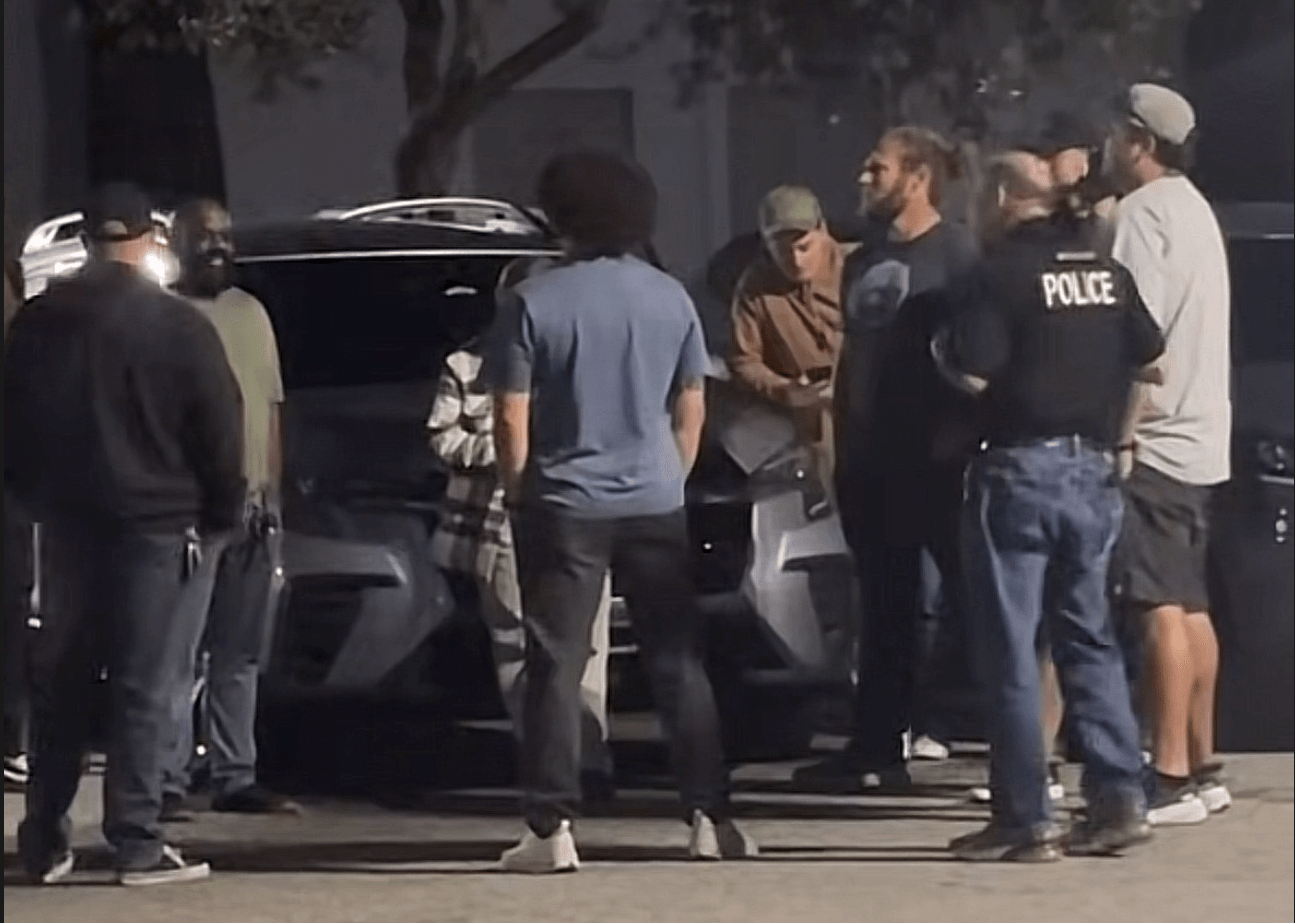Every day, Ted Delgado pulls down a small dry erase board hanging above his register and lists the day's specials at Teddys Cafe in West L.A.'s Sawtelle neighborhood.
There are items that rotate in and out. And others, like the robust huevos con chorizo, that are always available from the kitchen. Less favored recipes go on long hiatuses.
But one day, Delgado wrote down a special that his customers have successfully nagged him back into serving every Friday for the last twenty-seven years; a plate of thick, crispy, golden, beer-battered fish and chips. And to this day, every Friday, his community knows that the fish will be frying.
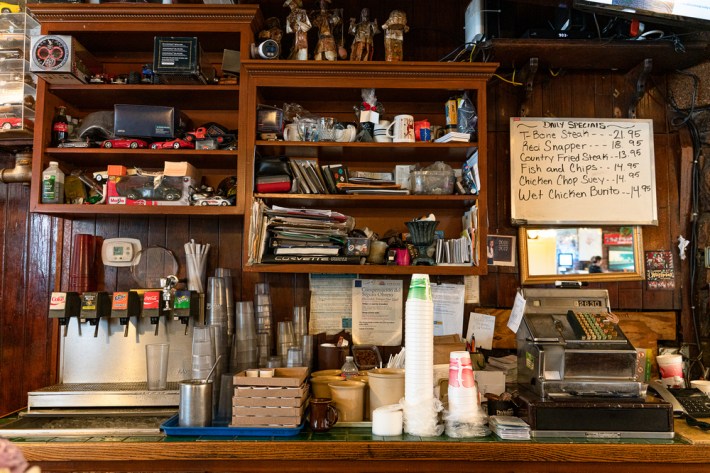
These fish and chips didn't turn into a tradition solely due to their rich, brass-plated batter and meaty cod. Even if the generous portions and generous crunch still have a lot to do with their success.
Traditions are really built by the communities they nurture, especially those built around food. They provide a sense of belonging and connection to a neighborhood, defying change in the spirit of preservation, bond-building, and maintaining social cohesion and spaces for identity.
It's the reason why grandmas will make mole, dads will barbecue, and the rest of us flock to join them. It's more than just the food on the table; it's the people these traditions bring back to it.
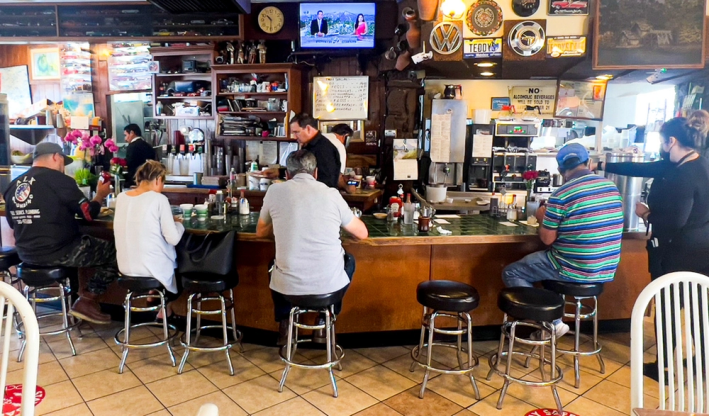
The fish and chips is just one of many such traditions at Teddy's Cafe. Less obvious lore hides within its menus daily. This includes "Martin's Omelette," named after the cafe's very first customer, who happened to be sitting next to me at the counter (eating something else) when I interviewed Delgado for this story.
Some traditions are displayed prominently on the cafe's walls, like the hundred or so model cars Delgado has received as gifts over the years. Other traditions, like the Thursday car shows that were once held here, have been lost to the grasp of time.
Delgado, a man who listens to his customers, said yes to hosting classic car shows when he first opened Teddy's Cafe in November of 1988. The Old Timer's Car Club were looking for a new home for their Thursday night meet-ups.
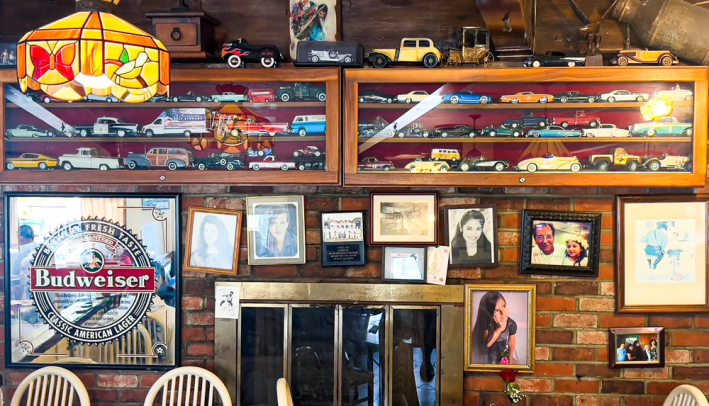
Their old location, All American Burger in Westwood, was in the throes of its last days, and Teddy's was just getting started. At the time, the car club's members were already in their sixties; most of its members have since passed away, but only after making Teddy's a home for Westside OGs, who returned the favor by making fish and chips a Westside tradition.
A younger car club did try to bring the car shows back to Teddy's at one point.
"They just got drunk in the parking lot, caused fights, and wouldn't come in to eat," Delgado says.
They weren't there to create community, but merely to use his parking lot.
"Their cars weren't really classics," Delgado adds.
When you walk into the cafe today, you'll find older folks that Delgado knows by name sitting next to construction workers taking a break from adding new developments to their rapidly changing neighborhood.
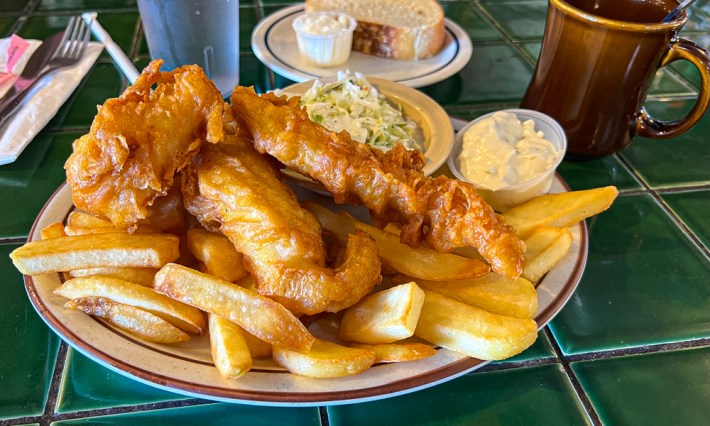
But every Friday, it's packed with folks returning for these gorgeous pieces of jagged, golden ore. Audibly crunchy bites expose a pillowy cod, peeking from its protective, beer-battered shell, even heard through the clamor of dishes as the wait staff hustles back and forth from the kitchen to the table. A gentle hint of lemon mist perfumes the air as the citrus is squeezed over the golden skin.
Delgado, an immigrant from La Capilla de Guadalupe, Jalisco in Mexico, arrived in Santa Monica at nineteen and immediately began working at Rae's Diner the next day. After opening up Teddy's, he purchased nearby Rae's in Santa Monica, where he started his career in diners as a dishwasher.
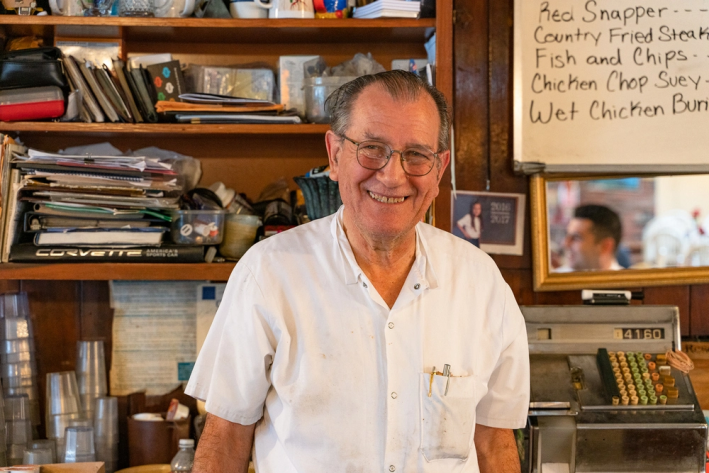
Teddy has spent a lifetime covering a grueling daily schedule that hasn't changed much since being detailed in this old Eater article. Still, he wears a smile that tells you he loves what he does. His immigrant's journey from dishwasher to owning diners and classic cars is the last of the classic "American Dream" stories that were once so common.
He runs both Teddy's and Rae's with the help of his wife who manages all the business aspects of both restaurants. His brothers, nephew, and some of the same staff he first worked with on his first day in Los Angeles help him in the kitchen and waiting tables. You might see the same folks working at both restaurants. Each diner, only a few blocks from each other but divided by the 10 freeway, has its own decor and vibe, distinct personalities dictated by their clientele and history.
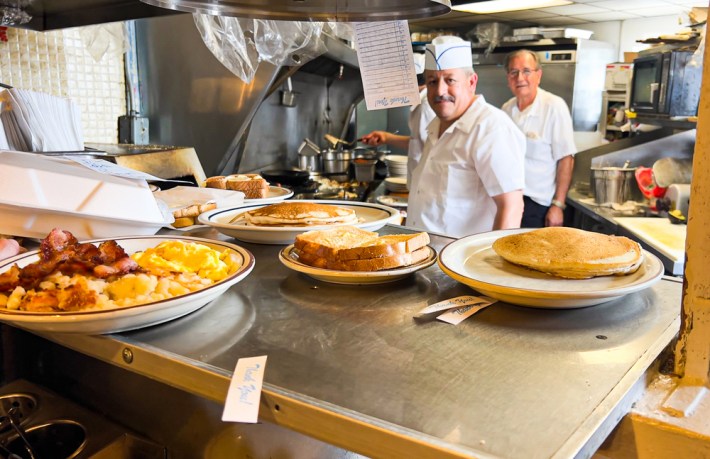
The menus are almost identical except for some nuances. For example, the mild salsa at Rae's is intended for a whiter Santa Monica demographic, while Teddy's, with a vigorous and spicier salsa, is for a more mixed crowd.
As Delagado says, "it’s what the customers ask for."
Delgado still lives in Santa Monica with his '55 and '56 Bel Aire, '65 and '66 Impala, and a '63 Ford Galaxy blue convertible you might see parked in the lot.
Hopefully, the classic cars will return to Teddy's one day. Until then, the Westside will always have their fish and chips on Friday.
Teddy's Cafe ~ 12043 W. Pico Blvd. Los Angeles, CA 90064. Closest transit lines and stop: Metro E Line - "Expo/Bundy Station" or Santa Monica Big Blue Bus Lines 7, Rapid 7, 14, and 15 - "Pico/Bundy."
